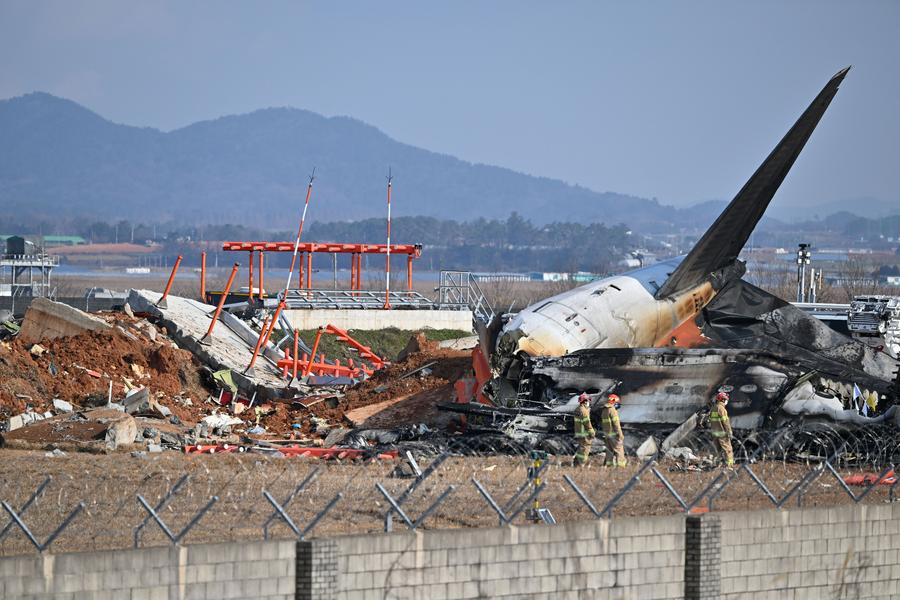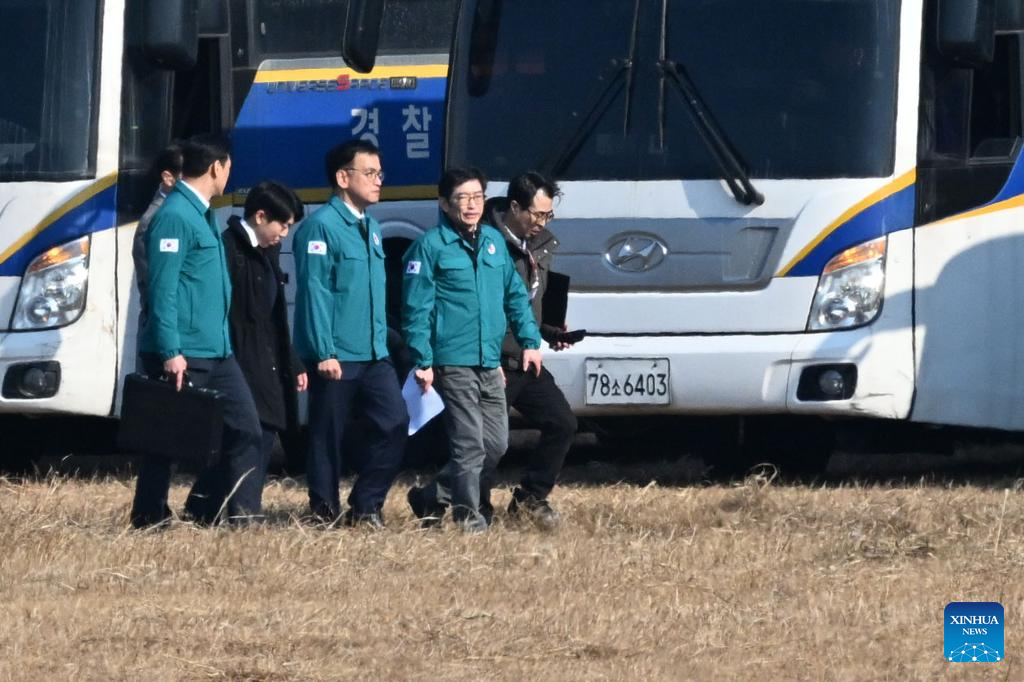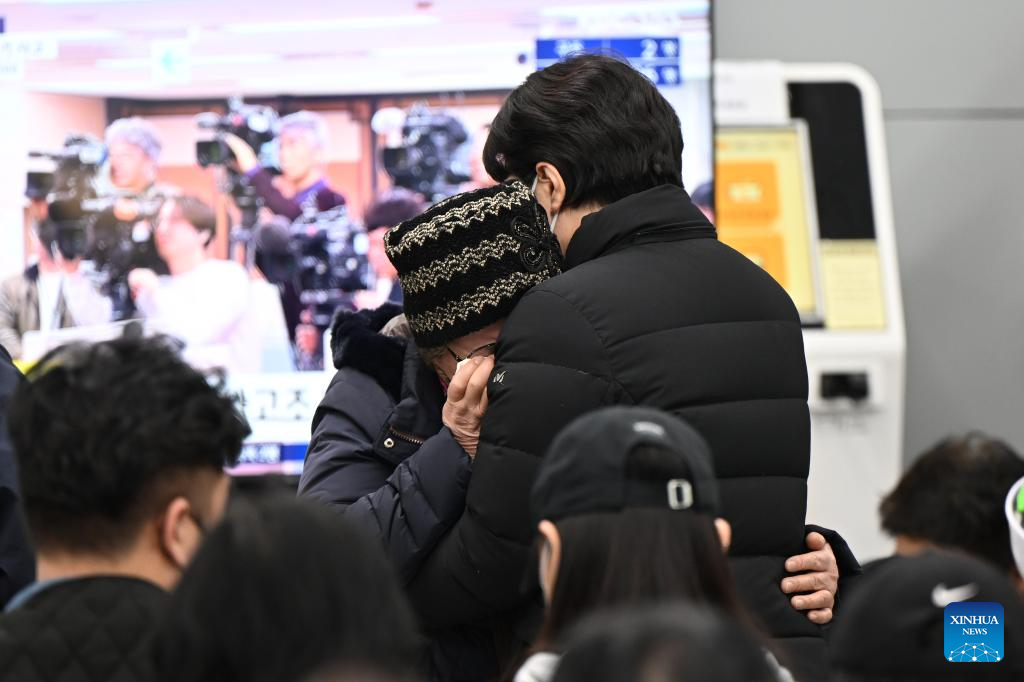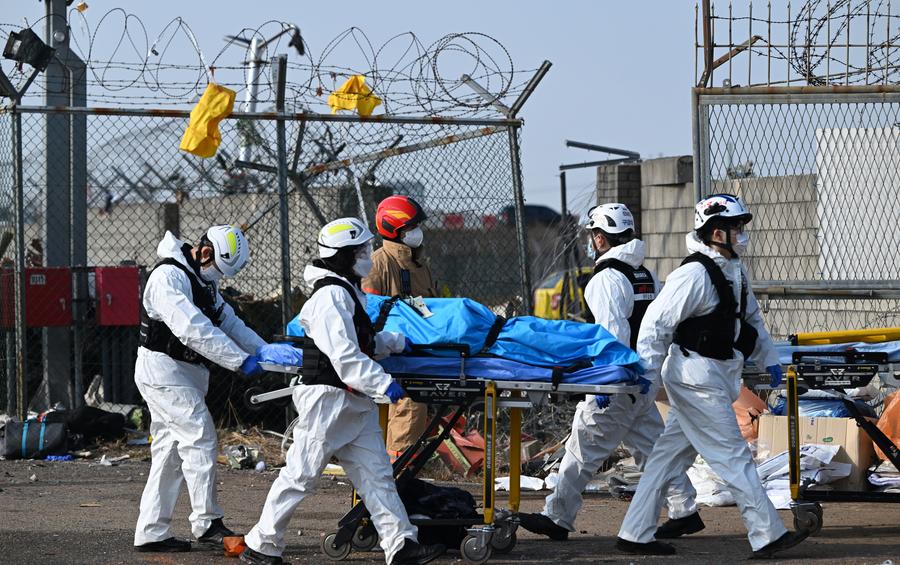
President Xi Jinping sent a message of condolence on Sunday to South Korean acting president Choi Sang-mok over the crash of a Jeju Air passenger plane, which killed 179 people.
Xi said he was shocked to learn about the tragedy that caused a significant loss of human lives. On behalf of the Chinese government and the Chinese people, he expressed deep condolences and extended sincere sympathies to the bereaved families, and wished the injured a speedy recovery.
The twin-engine Boeing 737-800, arriving from Bangkok, Thailand, with 175 passengers and six crew members on board, belly-landed and veered off the runway, bursting into flames as it plowed its way through a concrete wall at Muan International Airport, about 288 kilometers southwest of Seoul, shortly after 9 am.
The crash, which took place in Muan county, South Jeolla province, is the deadliest aviation accident ever on South Korean soil, and the third-most fatal by death toll involving a South Korean airline, Yonhap News Agency reported.
Domestic and international flight operations at Muan airport will stay suspended until Wednesday, the local news agency said.

In an emergency meeting on Sunday evening, Choi declared national mourning period until midnight on Saturday. The acting president, who visited the crash site, said the government was putting all its resources into dealing with the accident.
Joo Jong-wan, a senior South Korean Transport Ministry official, said that workers have retrieved the flight data and cockpit voice recorders of the plane's black box, which will be examined by government experts investigating the cause of the crash and fire.
Footage of the crash aired by South Korean television channels showed the plane skidding across the runway at high speed with its landing gear still closed, overrunning the buffer zone, and then colliding head-on with the wall, triggering an explosion.
Lee Jeong-hyeon, chief of the Muan fire station, told a televised briefing that the plane was completely destroyed, with only the tail assembly remaining recognizable among the wreckage.
ALSO READ: S. Korea secures black boxes from crashed passenger jet
Investigators are looking into various possible factors behind the crash, including bird strike and bad weather, Lee said. Yonhap cited airport authorities as saying a bird strike may have caused the landing gear to malfunction.

Of the 175 passengers on board, two were Thai nationals and the rest were all South Koreans, and they all died in the crash, according to local media reports. The youngest passenger was 3 years old and the eldest 78.
The two survivors were both crew members, a man and a woman, whose conditions health officials said were not life-threatening.
Jeju Air CEO Kim E-bae issued an apology and extended condolences to families who lost their loved ones. "Regardless of the cause, I take full responsibility as the CEO," he said.
Kim said the aircraft had no record of accidents and there were no early signs of malfunction, adding that the airline will cooperate with investigators and make supporting the bereaved families its top priority.
Boeing said in an emailed statement: "We are in contact with Jeju Air regarding flight 2216 and stand ready to support them. We extend our deepest condolences to the families who lost loved ones, and our thoughts remain with the passengers and crew."

The Jeju Air flight departed from Bangkok's Suvarnabhumi International Airport at 1:30 am and was scheduled to land in Muan at around 8:30 am. Kerati Kijmanawat, president of Airports of Thailand, said no abnormal conditions were reported during take-off.
A Thai government spokesman said that two Thai women, age 22 and 45, were on the plane, adding that more details about the passengers were being verified.
Thai Prime Minister Paetongtarn Shinawatra expressed her condolences to the bereaved families and sympathies for the injured in a post on X. She said she had instructed the Thai Foreign Ministry to provide assistance.
READ MORE: Fiery plane crash kills 179 in worst airline disaster in South Korea
The Muan crash is one of the deadliest disasters in South Korea's aviation history. The last time South Korea suffered a large-scale air disaster was in 1997, when a Korean Airline plane crashed in Guam, killing 228 people on board.
Yang Yilin and Zhao Jia in Beijing contributed to this story.
Agencies — Xinhua


